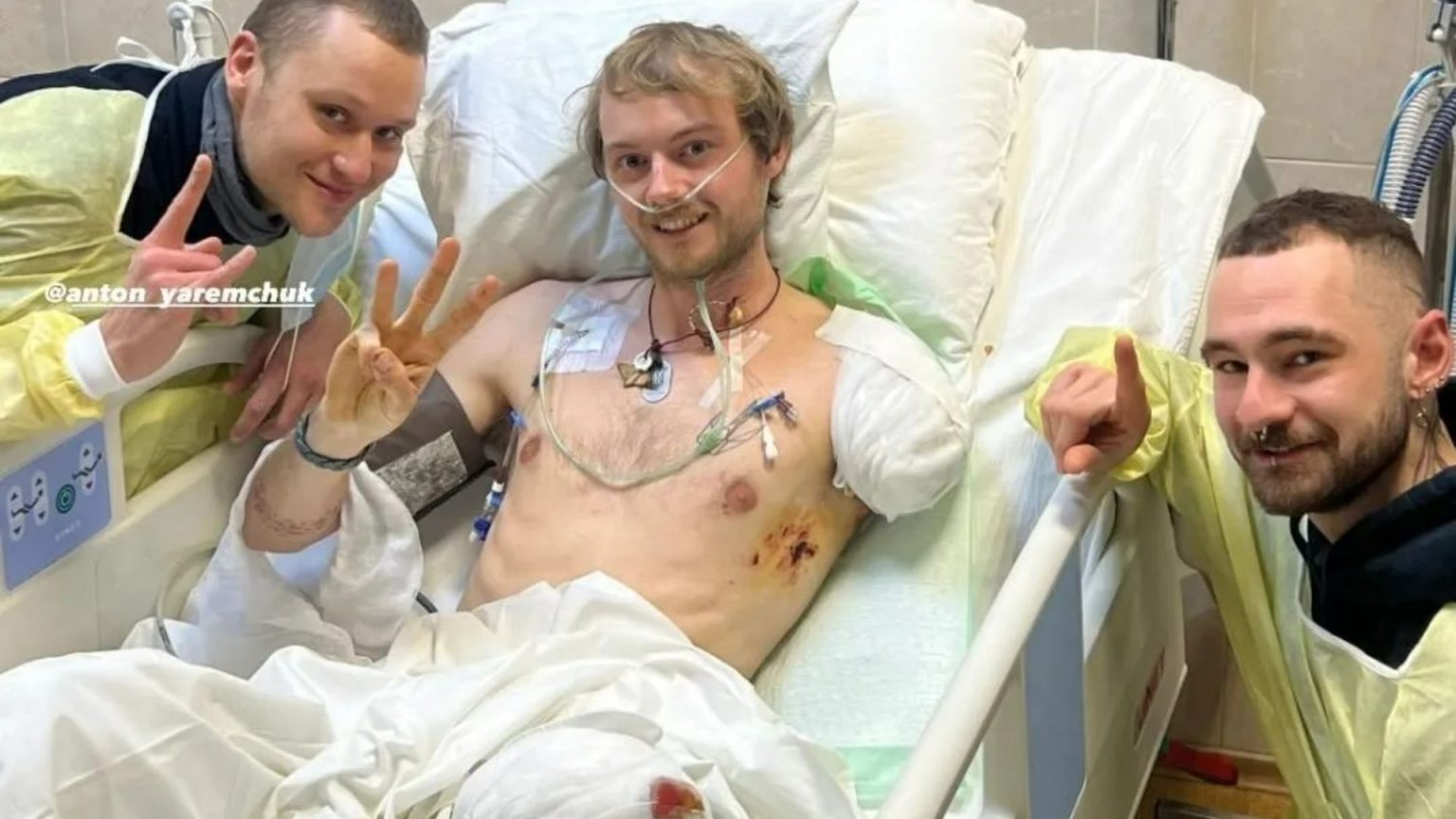Eddy Scott, a British aid worker, suffered severe injuries, losing his left arm and leg, after a Russian drone targeted the clearly marked humanitarian truck he was driving in Pokrovsk, Ukraine, on January 30th. He was evacuating civilians from the war-torn city when the attack occurred. Despite the horrific ordeal, Eddy has shown remarkable resilience, photographed giving a thumbs-up from his hospital bed. He tearfully acknowledged his colleague, Filip Goncharov, who pulled him from the wreckage, crediting him with saving his life. The scene of the attack was devastating, with the armoured truck ripped open and blood staining the driver’s seat.
Eddy, a former sailor from Shaftesbury, Dorset, has dedicated the past three years to humanitarian work in Ukraine. This incident was not his first brush with danger. In December, his team narrowly escaped another Russian attack while rescuing elderly women from Shevchenko. In an online post before the attack in Pokrovsk, Eddy described the constant threat of kamikaze drones operated by both sides of the conflict. He detailed the challenging conditions they faced, including the ever-present fear of attack, and the efforts to persuade some hesitant civilians to evacuate. He also painted a stark picture of Pokrovsk, highlighting the daily destruction and the toll the war has taken on the city.
Base UA, the non-governmental organization Eddy worked with, confirmed the attack occurred during a civilian evacuation. They lauded Filip’s quick action under pressure, providing vital first aid that saved Eddy’s life. Two evacuees also suffered minor shrapnel injuries. The organization emphasized the repeated targeting of humanitarian efforts and civilians by Russian forces, a daily occurrence in Pokrovsk. They pledged their continued support to Eddy and Filip as they recover.
Eddy’s dedication to helping Ukrainian civilians is underscored by his previous actions. He opened his home near the Eastern front to fellow Brit Nick Laidlaw and his translator, providing them with lodging and meals while they documented the war. Laidlaw described Eddy as selfless and tirelessly committed to helping those affected by the conflict. This incident underscores the dangers faced by humanitarian workers like Eddy, who risk their lives daily to assist those trapped in the conflict zone.
A GoFundMe page established for Eddy has already raised a substantial sum to support his recovery and living expenses. The page highlights his three years of service in Ukraine, where he repeatedly risked his life. It emphasizes the need to provide him with the best possible care and support as he navigates his rehabilitation and faces the long-term impact of his injuries. The funds will also cover his living costs during his recovery, as he will be unable to work.
The attack on Eddy resonates with another tragedy a year prior, when British aid workers Chris Parry and Andrew Bagshaw were killed during an evacuation mission in Soledar. Parry’s family also acknowledged his selflessness and dedication to helping vulnerable Ukrainians. These incidents highlight the perilous conditions humanitarian workers face in conflict zones and the ultimate sacrifices they make in their efforts to aid those in need. Eddy’s story calls attention to the ongoing humanitarian crisis in Ukraine and the urgent need for support for both the victims of war and those who risk their lives to help them.


